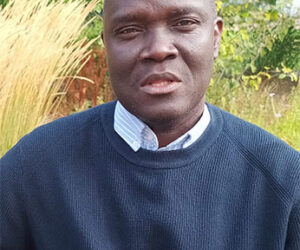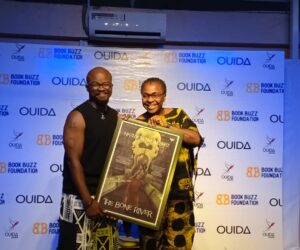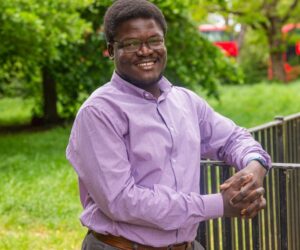1
The sun had barely risen when the city began its symphony. Lagos didn’t wake gently—it jolted awake with a cacophony of honking horns, vendors’ calls, and the rhythmic clatter of shoes on dusty, sandy, and tiled roads.
Long before the first streaks of dawn fully claimed the sky, Lagos had already declared its refusal to sleep. It was alive, restless, and demanding, pulling every inhabitant into the swirl of its energy.
The daily commute in Lagos is more than just movement from one point to another; it is a ritual, a performance, a test of endurance and wit. It is where survival instinct collides with human connection, and where every step is a negotiation with both the city and oneself.
I would run after the bus, weaving through the tide of bodies, each of us competing for space, for time, for survival. The Danfo, that yellow emblem of Lagos hustle, rattled and roared as though held together by sheer faith. I clutched my bag tightly, an unspoken shield against both pickpockets and the press of humanity.
Around me, the air was thick with a heady cocktail— exhaust fumes, roasted yam, corn, ‘boli’ (roasted plantain), and the salty tang of sweat.
Inside the bus, bodies pressed together in a reluctant intimacy. Yet in that suffocating closeness emerged a strange solidarity. Without words, we shared space, burdens, and moments of fleeting tenderness.
A hand stretched out for balance was held by a stranger. A conductor’s witty banter provoked laughter that rippled through tired faces. The driver’s reckless swerve was answered with shouts, curses, and sometimes, reluctant amusement.
Even the quarrels—the conductor accusing the driver of neglecting his duty, or passengers complaining about being cheated of their change—were part of the rhythm. It was chaos, but a familiar one.
Navigating Lagos streets became an education, one no classroom could offer. It taught patience, not as resignation but as a discipline, a practice honed daily in the face of endless traffic and delayed buses. It taught attentiveness—an artistry of observation—because in Lagos, everything mattered: the way a hawker weaved through cars with uncanny balance, the sudden shift of the crowd that signaled a bus had arrived, the subtle glance that warned of a pickpocket nearby.
To live in Lagos was to improvise constantly, to be alert, flexible, and ready to adapt in an instant.
The city itself became a theatre, with each day bringing a thousand unfolding dramas. I watched a woman balance a baby on her back while haggling fiercely over the price of oranges, her determination cutting through exhaustion. I saw a boy with dust-streaked legs, trailing behind his mother who carried trays of groundnuts on her head, his small steps swallowed by the endless tide of commuters.
There was the man balancing crates of chilled soda on his head, his movements defying logic, gravity, and the laws of physics. And always, the hawkers—offering gala, bottled water, plantain chips, phone chargers, newspapers, and even miracle prayer handbills—turning every traffic jam into a bustling marketplace.
Each encounter reminded me that Lagos was never a place of stillness. It refused stagnation. Even in its frustrations, its clogged highways and impatient crowds, the city pulsed with a vitality that demanded participation. To commute in Lagos was to accept that you were not merely traveling, but witnessing, learning, and sometimes surrendering.
By the time I reached my destination, I had lived through a hundred lives not my own. I had seen the persistence of mothers, the stubborn hustle of young men, the humor of conductors, and the quiet resilience of strangers who, despite everything, still found ways to smile.
Lagos had a way of reminding me that life was never static, never predictable. In its chaos, it revealed the beauty of human connection, the small kindnesses hidden in overcrowded buses, the strength carried in weary steps, and the stubbornness of a people who refused to be broken by the weight of their city.
The commute was exhausting, yes. It was maddening, often. But in the relentless chaos, there was always something more: a reminder that to live in Lagos is to dance with unpredictability, to survive by connection, and to discover, daily, that even in disorder, there is rhythm.







